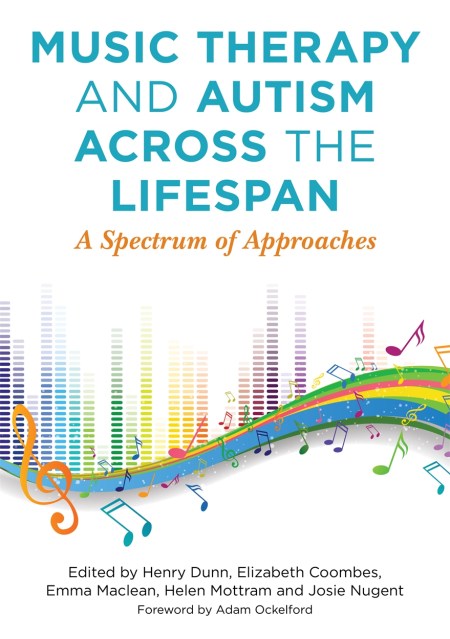Music Therapy and Autism Across the Lifespan
On sale
21st June 2019
Price: £29.99
Selected:
Paperback / ISBN-13: 9781785923111
The use of music therapy is long established with people with Autistic Spectrum Conditions. The combination of using music and relationship work in person-centred approaches supports the three main areas of difficulty people with autism often experience; social interaction, communication and imagination. Current research supports the positive psychological benefits of music therapy when people with autism spectrum conditions engage with music therapy.
This book celebrates the richness of music therapy approaches and brings together the voices of practitioners in the UK. With a strong focus on practice-based evidence it showcases clinicians, researchers and educators working in a variety of settings across the lifespan.
This book celebrates the richness of music therapy approaches and brings together the voices of practitioners in the UK. With a strong focus on practice-based evidence it showcases clinicians, researchers and educators working in a variety of settings across the lifespan.
Newsletter Signup
By clicking ‘Sign Up,’ I acknowledge that I have read and agree to Hachette Book Group’s Privacy Policy and Terms of Use
Reviews
Wonderfully rich in its range of content, this book is a must read, an invaluable text for music therapists, other professionals, and music therapy training programs worldwide. The contributors, all experienced music therapists and researchers from across the UK, describe improvisational, relational, and collaborative approaches. Offering a deep appreciation of people with autistic spectrum conditions across the lifespan, and of how music therapy 'works', this book illuminates the interweaving of musical, developmental, humanistic, and psychodynamic perspectives, in the service of neuro-diversity, identity and culture.
This book brings together an impressive range of perspectives on music therapy practice in the UK, with authors offering reflective insights to their work across the autism spectrum and the lifespan. The writing is deeply respectful of the lived experience of people on the autism spectrum and highlights how music therapists can contribute to celebrating autistic identity and culture. Highly relevant critiques are made about best practice for defining and measuring outcomes in therapy that challenge clinicians and researchers to intensely reflect on their practice.

